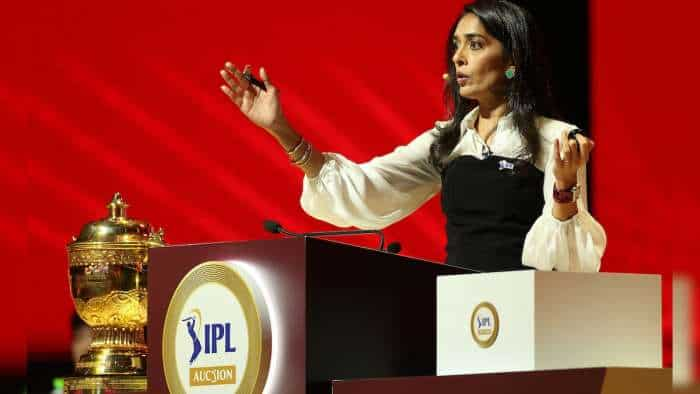War on black money round up: Seven initiatives that PM Modi took in 2016

From voluntary disclosures to forced restrictions, this year saw many initiatives by the government as they tried to curtail black money usage in India.
The amount of black money in the economy has long been debated on. Some reports showed the presence of just Rs 400 crore in black money while others said over Rs 1.4 lakh crore and Rs 9,295 crore with Swiss banks.
Seven initiatives in 2016 starting with the voluntary declaration of undisclosed income scheme were motioned to eliminate illicit money from India.
1. Income declaration scheme (June 1)
A four-month window that opened on June 1 was propagated by the government as not so much a disclosure for black money hoarders but for individuals who have not disclosed their income in the previous years.
The scheme allowed for these individuals to pay taxes till November 30 with penalty and surcharge totalling 45 % at the fair market value.
IDS procured a total of Rs 65,250 crore from 64,275 declarants; this, as compared to Finance Minister, Arun Jaitley’s initial estimate of Rs 29,362 crore.
The due date for filing returns was later extended to October 17 from September 30.
2. Project insight (July 19)
Gearing up to attack a bigger tax base, the government announced this scheme which has been projected to come into effect from May 2017.
Introduced by the Income Tax Department to strengthen the non-intrusive information-driven approach for improving tax compliance and effective utilization of available information.
The IT department later said that the project will be rolled out in three stages with the first phase being implemented from May 2017.
In order to effectively utilize the vast amount of information at its disposal more effectively to track tax evaders, the IT department on July 19 announced the signing of a deal with Larsen & Toubro Infotech for its implementation.
3. India-Cyprus DTAA (August 24)
The Union Cabinet on August 24 gave its nod for signing the revised double taxation avoidance agreement (DTAA) with Cyprus.
It provides for source based taxation of capital gains arising from alienation of shares, instead of residence based taxation provided under the existing DTAA.
In simple terms the deal gives India the right to tax capital gains arising in India.
Cyprus DTAA was signed on November 18 and is expected to come into play from April 1, 2017.
4. Benami Transactions (Prohibition) Act (November 1)
The bill was an amendment of the older Benami Transactions Act of 1988. The Lok Sabha on July 27, passed the Benami Transaction Bill 2015 which was predominately an anti-black money measure with the purpose to seize unknown property and prosecute those indulging in such activities.
The bill defines ‘benami’ properties as property transactions where i) a transaction been made under a fictitious name; ii) the owner is not aware or denies knowledge of the ownership of the property; iii) the person providing the property is not traceable.
Earlier, any violation of the Act would lead to imprisonment of up to three years, or a fine, or both. Now, under the amended Act, any offender would stand to be punished with imprisonment of up to seven years and be charged a fine which may extend to 25% of the fair market value of the benami property.
5. Demonetisation (November 8)
In a surprise move by the BJP government led PM Modi on the night of November 8 announced one of the biggest initiatives to demonetise Rs 500 and Rs 1,000 notes.
Overnight 86% of the higher currency denominations were made illegal tenders; however, few exemptions like buying petrol, airline tickets, railway tickets, pre-paid mobile top ups, government owned medical stores and hospitals, utility payments and toll booths.
PM Modi gave the citizens a period of 50 days, from November 8 to December 30 to deposit all their old notes into bank accounts.
There were many amendments to this rule practically every day. From extending the deadline to use old notes to December 15 to allowing cash withdrawals up to Rs 2.5 lakh for weddings only the government introduced many rules.
Deposits of more that Rs 2.5 lakh, the government said would come under scrutiny.
The latest amendment on December 19 further restricted cash deposits to one time cash deposit of Rs 5,000 only and any deposits over and above it would needed to be explained as to why was it not deposited earlier.
A little more than a month after the announcement on December 15, the government announced that out of Rs 14.18 lakh crore pulled out of the economy Rs 13 lakh crore had made its way back into the banking system.
6. India Swiss bank black money information share deal (November 22)
India and Switzerland inked the ‘Joint Declaration’ for implementation of Automatic Exchange of Information (AEOI) on November 22 of the money held in Swiss accounts by Indians.
With this, the government could possibly go after the ‘big fish’ who have used these accounts as a safe haven for black money.
However, the Swiss banks said they will not share details about accounts held prior to that period, while the first such exchange will happen only in September 2019.
This joint declaration which came after four years of negotiations is intended to introduce automatic exchange of financial account information between the countries on a reciprocal basis from 2018.
India first ratified the Multilateral Convention on Mutual Administrative Assistance in Tax Matters (MAC) in June 2012 and then also signed the Multilateral Competent Authority Agreement on Automatic Exchange of Financial Account Information (MCAA) on June 3, 2015.
7. Pradhan Mantri Garib Kalyan Yojana - PMGKY (December 17)
In what has been called the ‘last window’ in this year for black money hoarders to come clean or face stringent penalties, the government reopened the scheme announced earlier.
Under the Pradha Mantri Garbib Kalyan Yojana which began on December 17 the government said the window will remain open till March 31.
The government added that declaration under this scheme, which can be made by any person in respect of undisclosed income in the form of cash or deposits in an account, will attract tax at 30% of the undisclosed income, surcharge at 33% of tax and penalty at 10%.
A mandatory deposit of 25% of the undisclosed income in Pradhan Mantri Garib Kalyan Deposit Scheme, 2016 will also be done, the government said.
The income declared under the Scheme shall not be included in the total income of the declarant under the Income-tax Act for any assessment year.
However, the government said no immunity will be available under Criminal Acts mentioned in section 199-O of the Scheme.
Those who do not declare undisclosed income in this ‘Final Act’ will be liable to tax, surcharge and cess totalling to 77.25% of such income.
Get Latest Business News, Stock Market Updates and Videos; Check your tax outgo through Income Tax Calculator and save money through our Personal Finance coverage. Check Business Breaking News Live on Zee Business Twitter and Facebook. Subscribe on YouTube.
RECOMMENDED STORIES

IPL Auction 2025 Free Live Streaming: When and where to watch Indian Premier League 2025 mega auction live online, on TV, Mobile Apps, and Laptop?

SIP vs PPF: How much corpus you can build in 15 years by investing Rs 1.5 lakh per year? Understand through calculations

SBI Senior Citizen Latest FD Rates: What senior citizens can get on Rs 7 lakh, Rs 14 lakh, and Rs 21 lakh investments in Amrit Vrishti, 1-, 3-, and 5-year fixed deposits
12:01 PM IST








 Indians' funds in Swiss banks plunge 70% to hit four-year low of Rs 9,771 crore
Indians' funds in Swiss banks plunge 70% to hit four-year low of Rs 9,771 crore  Black money: PIL filed in Delhi HC to order Govt to implement Uniform Banking Code for Foreign Exchange Transactions
Black money: PIL filed in Delhi HC to order Govt to implement Uniform Banking Code for Foreign Exchange Transactions Tax treaties showing results; ITAT order passed on shared strong documents - Loud and clear message to tax evaders
Tax treaties showing results; ITAT order passed on shared strong documents - Loud and clear message to tax evaders 'Black money' held by Indians in Swiss Banks reports: This is what Finance Ministry said; cites possible reasons for increase in DEPOSITS
'Black money' held by Indians in Swiss Banks reports: This is what Finance Ministry said; cites possible reasons for increase in DEPOSITS  Big crackdown against Rs 500 cr black money! Income Tax raids in these 42 premises - Check what all was seized
Big crackdown against Rs 500 cr black money! Income Tax raids in these 42 premises - Check what all was seized